This is probably going to be a polarizing article.
I’ve tried to write an article like this for a long time – but could never find the words.
I know that there are several individuals who feel that social dance is a bastion of equality, with both women and men being fully recognized as equals. I also know that many (including myself) feel undercurrents of sexism in some facets of social dance.
Before some people get their knickers in a knot, I know that not every dancer (male OR female) is sexist. I’m also aware that the vast majority are not intentionally sexist. But, there is still an insidious undercurrent that is hard to name and hard to pin down.
I also recognize that in the context of a larger society, dance is safer than most places. I trust 90-95% of the people who are out at socials. I’ve never had an issue with a male roommate acting inappropriate, or been worried about something being put in my drink. I largely feel safe and respected 95% of the time.
But, for all this wonderfulness, there is that 5% that directly behaves badly. There’s also a good portion of people who are not *intentionally* doing something wrong, but who are still behaving in sexist ways.
I know there is sexism in dance because I have experienced it. I have felt its sting, and I know I’m not the only one. I also know that there are facets of this sexism that also affect men – such as the great pressure present when the entire onus of the dance is attributed to the lead.
This is my story.
***
When I started dance classes, I was told I must always say ‘yes’ to dances; to say ‘no’ would be rude. It was also understood that the majority of the time, it would be men asking women for dances. I was also told that I should ‘just follow‘, since the lead was responsible for all the ‘hard stuff’.
When I first started social dancing, I had many dances I wanted to say ‘no‘ to. I had men who licked my ear, ‘accidentally’ grabbed my butt, and who led so roughly that it hurt. When certain men would walk towards me, I would run to the closest bathroom and hide until they had moved on to another partner. I was afraid to say ‘no’, because then I would be rude. I was only 19.
I remember when I would lead my friends, men would swoop in to ‘save’ me from dancing as a lead. I wanted to dance with my friends. Some of these ‘saviors’ called me names when I shooed them away. Some refused to let go of my partner. One had his friend grab me and tear me away from my friend.
A year into social dancing, a man offered to partner me. He would give me the ‘privilege’ of doing a routine with me – if I hit the gym and lost 10 pounds. I was 20, 5’8″, and 130 pounds.
This same man followed me to my hotel room 2 years later at a New Years Eve dance. He forced his way into my room after I repeatedly asked him to leave, and demanded I strip for him. When I declined, he offered me a penny to take off my skirt. I (obviously) declined again.
He then told me it was a ‘generous offer’ because I wasn’t worth that much.
A few weeks later, I brought up the incident to him and told him it made me feel very unsafe and uncomfortable. He responded by calling me an ‘attention seeking b**ch’ who ‘couldn’t get a guy to f**k me’ (stay classy, sir).
At the next social, he still asked me to dance. It was the first time I really remember declining a dance and not feeling terrible about it.
When I started teaching, I remember men who told me they didn’t want me to teach them because I ‘obviously wouldn’t be able to teach a lead’. To them, it was OK for women to learn from male instructors, but not OK for men to learn from female instructors. After all, “leading is the harder role”.
When I blogged about setting limits on what I would follow because I felt it was risky for my safety, I was called a ‘primadonna’ and a ‘b**ch’. I have been told that my arguments in some posts are invalid because ‘women are not the rational sex, and cannot know what they really want from a lead’. I have been told that I ‘need to be taken care of’, because female follows are more fragile and need protection.
I have also seen top international female pro’s told that they were ‘doing it wrong’ by men just starting their teaching journey. I have seen that same professional told that it would be much more constructive ‘if her [male] partner was there’ – despite the fact that she trained that partner.
To this day, I still have to prove that I know what I’m doing. I have had students on week 4 of classes tell me how to do a follow’s Lateral step, and correct me on the lead’s foot placement. Apparently, 4 weeks of Zouk classes as a male lead trumps over 4 years of Zouk classes, training and social dancing as a female follow and lead.
***
I know sexism exists in the dance scene because I have experienced it personally. I’m not even detailing all of the incidents of sexism that I have experienced or seen – only the most blatant ones. There’s an entire world below the obvious where women are devalued just a little bit. Not a lot, but just enough to reduce our equality – especially when all those incidents are put together.
No, it is not every man – but it is some men.
No, it is not only men – women can be sexist too.
No, it does not only affect women – men also suffer.
Men suffer when we tell them they are responsible for the entire dance – regardless of the follow’s skill. They suffer when we make them solely responsible (in many scenes) for asking for a dance. They suffer when we don’t take ‘creepy’ dance floor women seriously. They suffer when so many people have an intensely negative reaction to two men dancing together.
In the end, dance is a microcosm of our larger society. As long as there is sexism in our world, it will also be present in our dance scene. We can fight to eradicate it – but let’s make it civil. Education, kind words, and an openness to other’s experiences will help to further the dialogue. Defensiveness, denial, and belittling others feelings will not.
Please, leave your (civil) comments on this topic below. I would love to hear other perspectives and stories.
Photo Credit: Brian De Rivera Simon, Tarsipix Studios
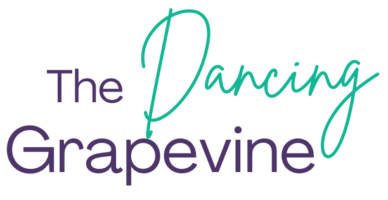
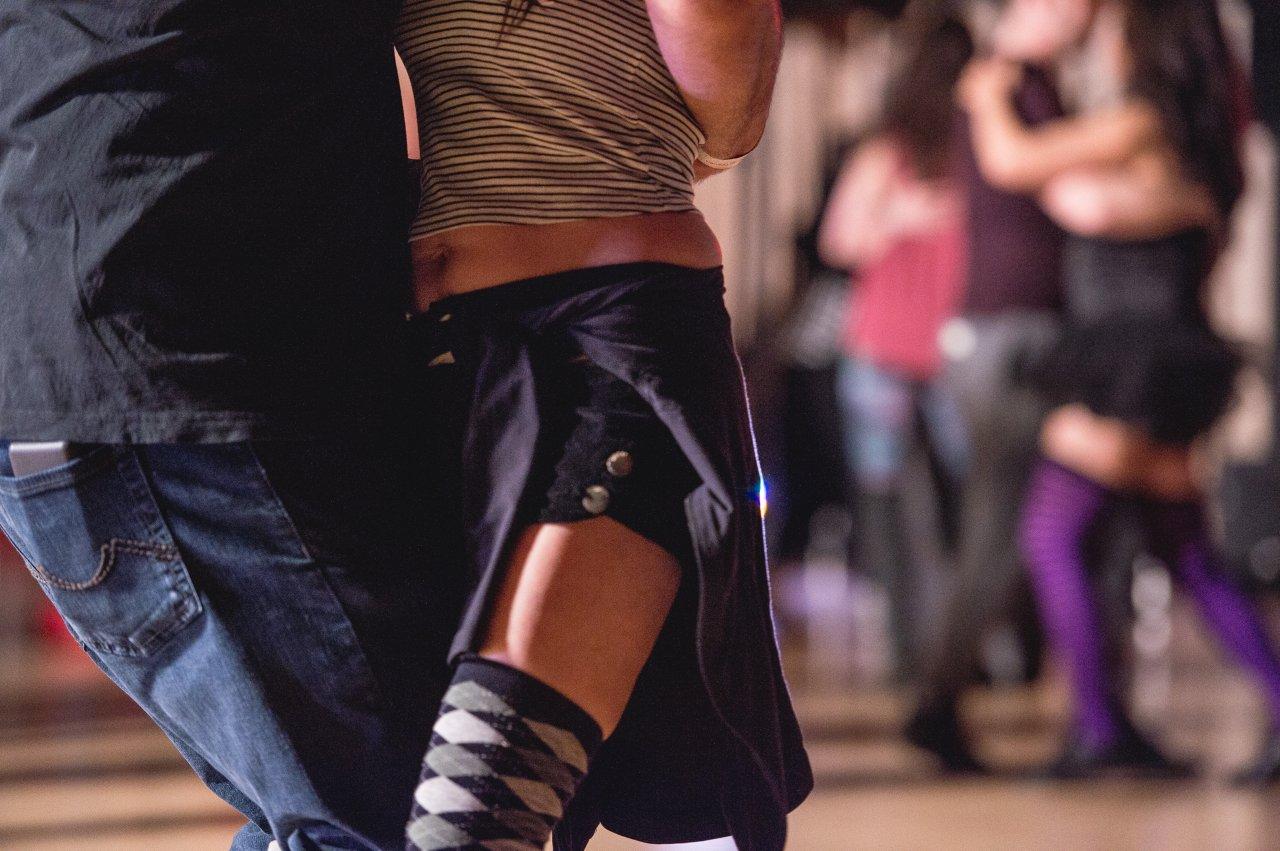
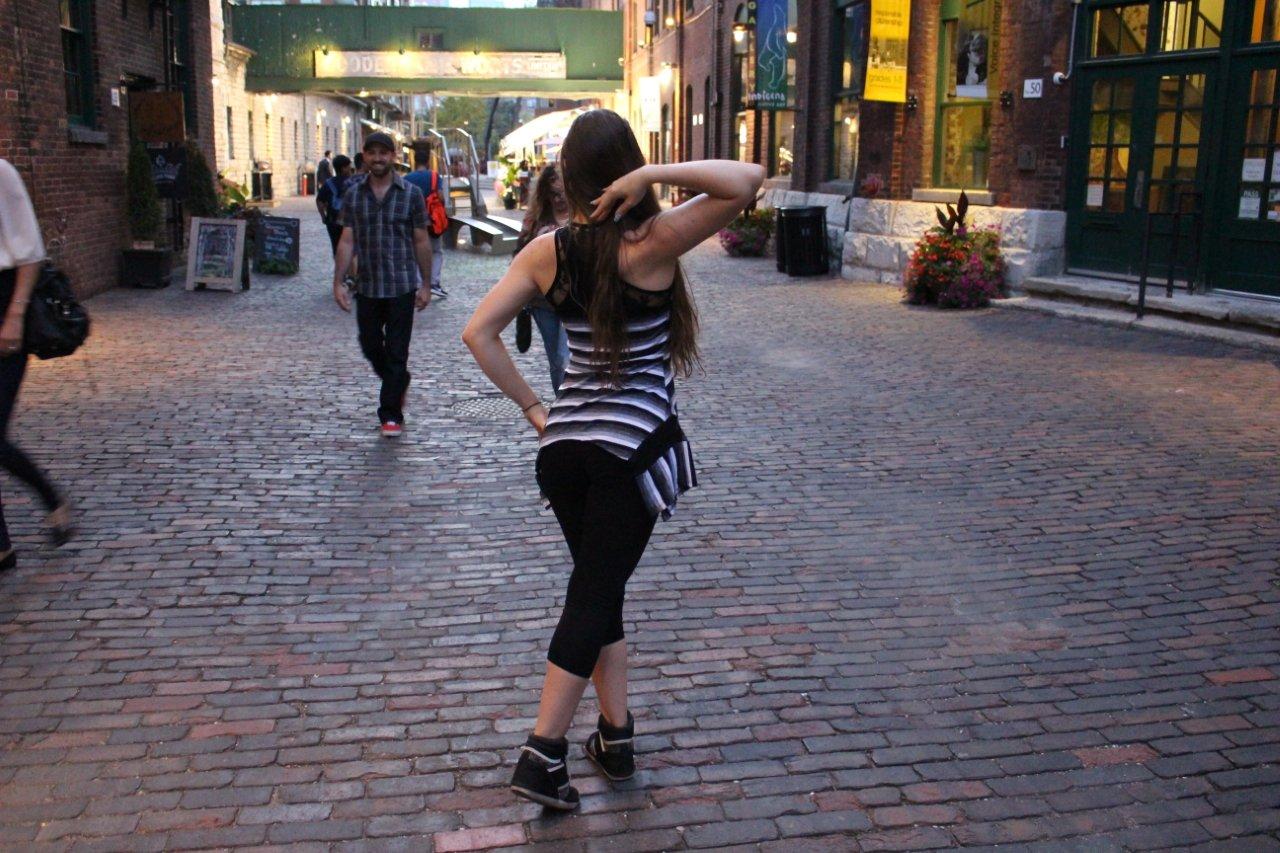
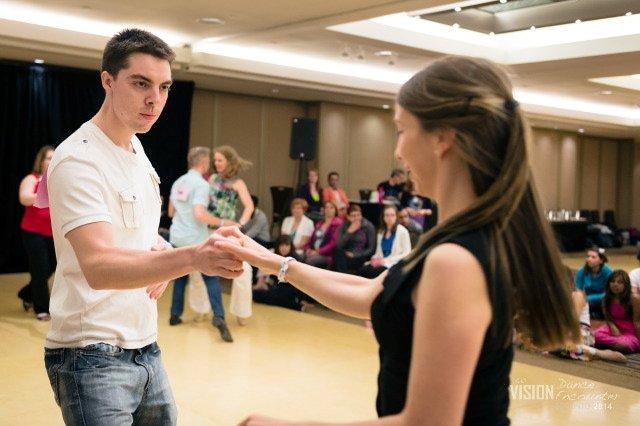
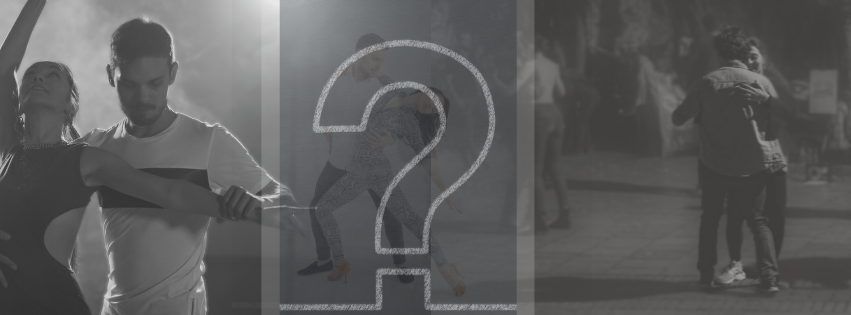

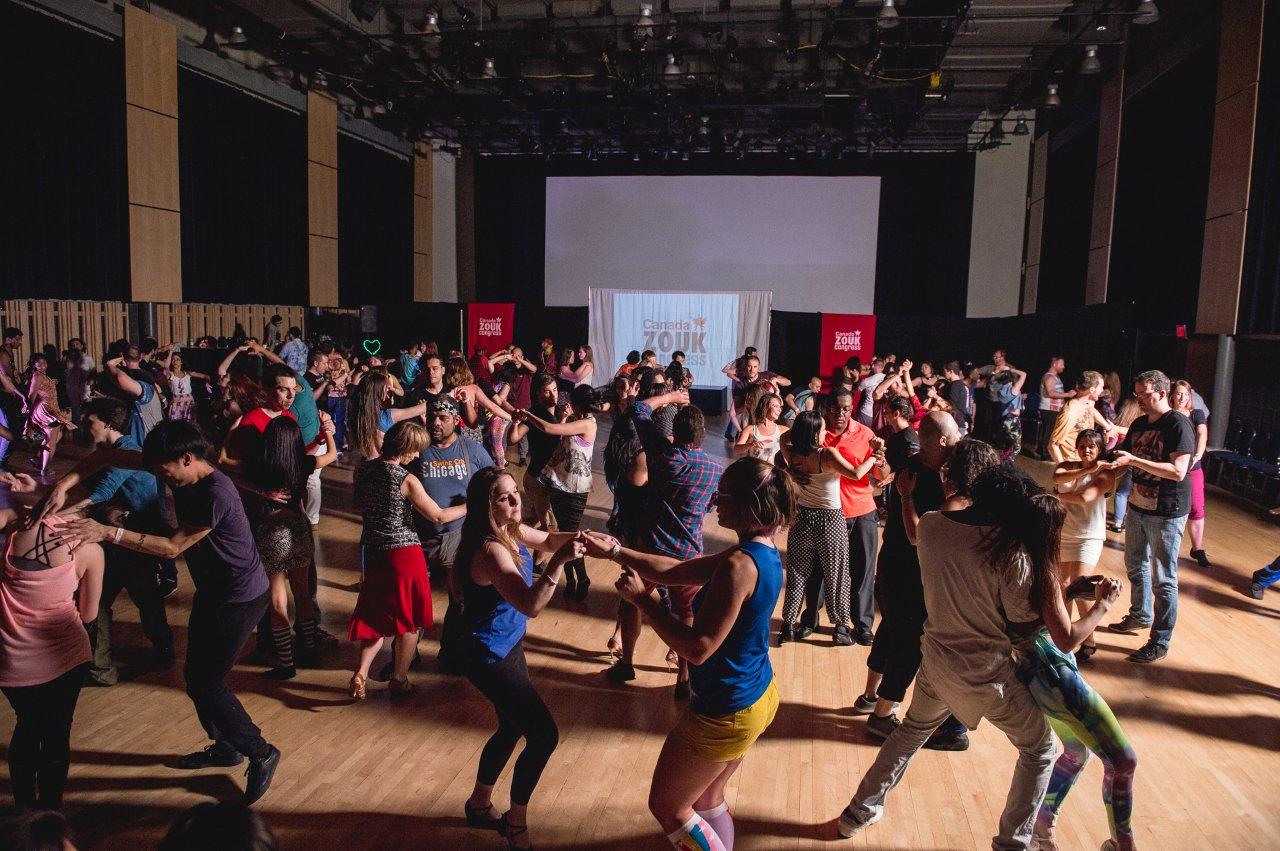
Yes! Well said. Yay it’s not just me who has experienced this.
This is a topic that is like to vary wildly from scene to scene and particularly country to country – and probably also dance culture to dance culture. Thus I’ll be looking forward to the comments from what I would assume is a very multinational community with great interest.
My own two cents: The taboo on men dancing with men seems rather common and powerful (not that it never happens of course), with the exception of the Argentinian tango community. Womens’ dance seems more accepted though it seems like much of this acceptance stems from the assumption of its necessity rather than approval. It seems like the background lies in there being more women than men in most dance communities nowadays (of course, the roots for the Argentine dance culture are identical, just with the opposite circumstances in Buenos Aires back in the day).
Social dance scenes also seem to vary with regards to the culture when it comes to asking. In Finland for instance, the traditional social dance events still have the evening split to ~4 hours of men’s turn and 1 hour of women’s turn (with occasional “women’s dances” that are the opposite) and there’s vocal opposition to a mixed system. In Sweden, the mixed system seems to work just fine though so go figure.
Most of the other communities, i.a. Lindy Hop, BW, Blues, Zouk/Kiz, Salsa, Milongas, and various student dance groups, seem to have no problems with mixed asking though my personal experience is that in practice it’s still about 70/30 the leaders spending more time asking people for dances than the followers. Though I’ve probably failed to fully account for my own cognitive biases here.
Actual behaviour on the floor, yeah, there exist those unfortunate cases. I’ve heard and seen enough that I’m painfully aware of it and that there’s little I can do about it other than try and ensure I myself don’t contribute to the problem.
There have been cases where friends of mine have waved at me while somebody is asking them and told the person asking them they had promised this dance for me. Somehow I feel like this is a problem stemming from declining a dance being such a taboo.
Thankfully I’ve yet to see males assuming superior mastery or knowledge because of their gender, but of course I’m neither female nor a teacher so I’m not in a prime position to spot such issues. I haven’t heard my female friends complaining about such things too much either though so perhaps the situation here is rather good in that regard?
Sometimes I think if the problem can ever be truly solved. Much like crime has never been entirely eliminated in the society, I’m not sure it’s truly possible to make any particular subculture entirely free of undesirable behaviour. But then I usually come to the conclusion that the question hardly matters: any improvement is better than none at all and thus it’s something worth striving for.
When I began to read this, it didn’t go in the direction I expected, and I am so sorry that that was the direction it had to go. I’ll say I’ve had the extremely good fortune to never experience or even first hand witness this.
What I’ve seen is of a completely different sort. In class, we are always being encouraged to learn both leads and follow, directed at both genders. And while the ladies are often “switching sides” (and often because of the male to female ratio being off), I’ve never seen a man come to the follow side. Men are expected to know how to follow and to teach follow, but not to *be* follows or dance with other men. It’s a much more common occurrence to see women lead and dance with each other (and with women commonly outnumbering men, it’s encouraged and expected of us), but to see men in the opposite is considered a novelty, unnecessary, or “wrong.” Aside from online videos, I’ve only ever seen it in class, when my teacher is demonstrating as the follow with a male lead, or with my friend who takes a very special pleasure in asking men to be her follows.
While sexism should be addressed out there in the real world, it many cases, it is not. I most definitely agree that the dance world is a microcosm. It’s a wonderful and protected world where people feel comfortable enough to interact in ways that would just be more difficult in the real world. That’s why I feel that such horrors as sexism should be actively stamped out and not allowed to fester. Yes the dance world can be a safe welcoming environment, but only if we work hard to keep it a great place for our friends and family to enjoy. The kind of New Year’s Asshole that you dealt with should be socially ostracized to the point where they feel too embarrassed to show their face again without massive reparations. We can start fixing the real world by dealing with issues close to home and not allowing it to happen. As for real world solutions, I can only think of a venue/scene representative that can take grievances and mediate much like today’s HR departments do. In most local scenes, it is well known who these people are that can be reached out to. (unless you are a total newbie, which is why some kind of official would be nice) Not to punish, but to educate and give warning. Repeat offenders just have no place in our happy little world.
As you said, 95% of dancers are great people and lead by example every day. The remaining 5% should be given the opportunity to shape up, or take their leave.
As for those too sexist to approve of a “wrong sex” instructor, I’m pretty sure they don’t read this blog. But we all know them, and hopefully peer pressure will help them open their eyes to not look a gift instructor in the mouth.
I live in a small town and have been dancing for about a year and a half. I’ve been learning and dancing both lead and follow for about a year now, this enables me to even the number of extra dancers out. When I first started learning lead I avoided smooth dances where the lead’s frame was a bit more important to lead the follow. Now there are a couple of dances, like Viennese waltz, that I am not comfortable dancing as a lead, because of speed or lead or things like that. I’ve found that being able to dance both parts helps me in all of my dances, I’m more aware of how I need to lead things or what the lead needs when I follow. I’ve danced with most of the people who go to our studio and we all enjoy learning from each other. At our studio there are 3 male instructors who aren’t comfortable/interested in dancing as a follow, they know the steps but won’t dance with a partner. The studio also has 4 female instructors, 3 of them dance mostly as a follow, although all of them can and have danced as a lead.
First of all, great article. I personally think that this is a topic that should be adressed (especially on occasions where it clearly is necessary).
I just want to throw in my thoughts on this topic. As a lead I sometimes feel the pressure of being responsible for the dance, and in particular, being responsible to lead exactly what she can dance (or wants to dance) – if I do something different, some ladies will show that bluntly. Overall, I would count this to a “bad” character, and not necessarily sexist.
However, I encountered dances which where much closer and intimate than what I wanted to dance. “Accidently” touching body parts can occur from both sides. I think it is as hard for the lead to communicate that within a dance as it is a follower.
Although two men dancing with each other is still uncommon, it is a lot of fun and gives a great learning experience. As does switching roles do. I’m glad that these reveresed roles do not seem to cause any trouble in the scene in which I’m dancing.
Great writing! I’ve experienced similar things in several dance scenes and countries unfortunately.
I’ve been grabbed by someone during dances and once I had the courage to ask him to stop, he never danced with me again.
As a single female teacher myself I’ve come across a lot of issues to be taken seriously as well. Thankfully I created a group around me who did, but it was extra hard work. And for what?
Thankfully in that same group people didn’t mind who was dancing with who. At some point I had extra guys in the group and quickly there was a male volunteer to follow. He liked it and did it more after that, even in socials. There was just one guy in class (traditional Chinese) who didn’t want to dance with him. He had no problems waiting his turn then and didn’t judge the others, so it wasn’t a big issue thankfully.
At a social at some point I was told I didn’t look sexy enough, that I should change and show more skin. Outrageous! Especially knowing he was a dance teacher…
I also notice the difference in the number of times you’ll be asked to dance correlates negatively with the amount of clothes you wear.
Unfortunately there are much more examples. Sometimes you just have to listen to some words that come out of a (male) teachers mouth, even if they don’t do it on purpose. But some of the students will take that message or of there and consider it the truth.
I agree that the dancing scene is a safe scene and I still love it most of the times, but there’s still a long way to go.
I have given up dancing because I got bored of dancing with guys who can’t lead. I felt restricted. Wouldn’t it be great if people who had dance move ideas led and those who wanted to be taken on a journey followed, irrespective of gender.
Sexism in the way you experienced it is indeed terrible and to me is a result of very bad manners, not only sexism solely. People acting like this (and yes there are also girls behaving that way) are simply rude, stupid and a shame for all the other people around. Unfortunately such people are pretty persistent in their behavior and show it in every place they enter.
I’m very happy that you are clearly stating it is also women being sexist. Yes man are expected to ask first, to be the ‘strong’ leaders, it’s the leaders fault never the followers, leaders need to be gentle, pay attention, care for their partner, and so on… Girls you want to be treated equally? (And yes i would appreciate that a lot) then stand up and take your 50% share in responsibility as well. Stop blaming the guys for everything. Watch out on the dancefloor yourself!! Many times i experienced that girls go crazy and expect their partner to save and secure them! Sorry but no! Take care of yourself AND of your partner. Believe me your dances gonna be much more amazing and connected 😉
I clearly see these expectations of responsibility as the major reason why guys dancing with guys (or guys being followers) is still seen as a taboo. Me personally i love to follow, as i learn so much for my leading and also because i can let go a bit and enjoy the creation of somebody else! I’m still a beginner follower so i mostly dance as a lead still. My most amazing dances though i had when i was dancing with partners equally taking responsibility, with girls tricking me, teasing me and leading my lead 😉 On such interactive dances i feel a truely amazing conversation developing and an equality establishing, the dance feels simply complete.
But i’m deviating from the core topic…
Sexism…. well it is clear we are all dreaming of a perfect world for our own. But each of us should be aware of the fact that this is first of all a pretty subjective thing and hence pretty impossible to reach without hurting/damaging somebody elses perfect world image. Also be very careful with your expectations and perception. I met quite a lot of girls dressing up and dancing in a very provocative way and then being surprised and upset about the reactions they triggered. If you don’t want the attention, don’t dress that sexy. If you don’t like to be touched all over, then don’t tease the guy offering all your body to him. Yes i know, easy to say, difficult to do, and yes there are guys that touch and act badly no matter how distant and well mannered you behave. Still, be concious yourself about what you do and what you trigger. (This is true for both guys and girls). Perception and conciousness are the keywords here. Why is everyone thinking/expecting others to perceive the things in the same way you do? Be concious, that your own perception is neither the truth nor does it necessarily reflect the meaning that the other person is putting into her/his actions.
One thing i’ld like to add in the end here, is the following:
First, whereever men and women meet, there will be some sort of sexual/sensual touch or undercurrent. Why, you ask? Because this is BIOLOGY! Deal with it, make your peace with it, this is a core part of life!
Second, social dancing is precisely about meeting the other gender, communicating, flirting and being physically active together. Yes also to have fun etc. but think again why you consider it as fun and be truely deeply honest to yourself. If you wouldn’t want to meet the other gender, you would go to a men’s/women’s club instead of social dancing. Why you dress up? To please the eye and get attention (both genders).
To summarize: to me the main problem/thing addressed in this article is:
-(good/bad) MANNERS
-EQUALITY (equal responsibility)
-CONCIOUSNESS
If we manage to improve those 3 fields, we all gonna have a more joyfull life.
WOW … I actually only wanted to make a ‘short’ comment… Hope there is something nice and helpful in it for you and not too much blabla 🙂
Hey MaleFollow,
I agree with most of your points – but I would be cautious about automatically ascribing sexual undertones. There are gay men and lesbians who dance with the opposite gender, and there are also same-gender straight dancers.
Second, I would be careful about conflating flirtatious dancing with an invitation for sexual touching. Being willing to connect in a dance gives you a pass to connect sensually for THAT DANCE. It is also revocable at any time, and generally does not include groping or inappropriate touching, no matter how close.
Sexy clothes are not an invitation for sexual behavior. They may be attention-grabbing and an attempt to ‘look sexy’, but wanting to ‘look sexy’ and be sexually touched are two different things.
Yes, its has been carefully acknowledged that sexism can go both ways. Both sexes fall into certain social expectations that may or may not be fair.
But I think your two points regarding how 1) sexual motivations are pardoned because they simply a function of biology and 2) the way a girl is dressed has implications of how she is to be treated, demonstrate the sexism experienced in the dance community.
Everyone has different culture, different backgrounds, different fashion styles that they are comfortable with. Dressing nice or showing skin does NOT mean they are requesting advances from the opposite sex. Dressing casually doesn’t mean that they are not interested in socializing and meeting new people. It is this kind of mentality that promotes sexism.
Yes, I have experienced it myself too to the point when I felt sick in my stomach, but I was too afraid or ashamed or something to stop it right there. It was not much the dance itself but rather the intention coming out from the male person. Luckily with the time I’ve learned to say no or just push away. Some guys make weird noises during the dance, some stare into the face for too long, some keep close for too long, some cross the line by massaging the sensitive part of the neck or the back, some dont even look like dancing but rather having a sex on the dance floor. Social dance became a great place for people seeking what they miss in their own personal life, this applies to both men and women. Unfortunately some teachers support the sexism in their own teaching or events too, as they are trying to attract more people to their business or they brainwash students by saying you need to connect to the partner first to feel the dance (in other words you need to use another person so you can feel selfishly better whether you cross the line or not) and that it is pretty natural, so you dont feel too guilty when doing that. Obviously they still havent realized that firstly a pure dancer connects to themselves and a partner can only contribute to the dance with their own connection to the dance. Very sad and very real. Thank you for speaking up.
I think this article is great that is building an awareness that ultimately lead to a higher quality time for everyone in the dance community. Thus, to contribute to this I would like to shed some light on the sexism that men experience. Just to rule out some extraneous factors, I’ll fill you in a little about me. Keep in mind I’m a straight guy that likes to lead and follow and I dance at various Zouk congresses in the United States. I’m a generally polite and respectful person, especially when requesting a dance. I shower and brush my teeth regularly (especially for congresses) and for simplicity’s sake, normal. Also, I am at worst an intermediate follow capable of smooth travelling off axis movement and in touch with the musicality (I usually get a lot of feedback saying I’m fun). I am writing this to help build off of the main article.
First, I think the zouk community has one of the lowest rates of sexism, but not to the point where it can be ignored. Men still face sexism and sometimes it really does hurt. So let’s get started. The worst thing, is when you pay good money to go to a dance congress to dance with your favorite teachers and you don’t get the privilege of one dance, when you’ve been trying to dance with them the entire weekend. I have had some teachers (males obviously) tell me flat out, “Sorry I don’t dance with guys”. This is kind of disgusting to me personally because it makes me feel like all of their dances had some sexual element involved which is not like my dance experience. Students obviously say this too (and personally I wish their attitudes changed), but it worse when teachers do it because they are supposed to represent the mindset of community and should be able to offer a healthy perspective. Other teachers deny me in more subtle ways. Frequently it starts with a look of disgust that a guy has asked them to dance, (I just think to myself, “way to stay focused”). Usually (and you can hear this in their nonverbal cues) I hear some lame excuse for why they “can’t”. They have used their lame excuse right after finishing a dance in some cases and in others have went on to dance with someone else right afterwards. I tried a teacher like 15 times one congress (like 3 times per day per social) and even though it was in the middle of the social dance, every time they had a different excuse. I even tried saying “Please save me one.” -no luck, they never come back and seemingly more important people find their way in (For the record I will never take a private from such teachers). On top of the pain of rejection, in this second type of teacher, it’s like a slow process of pulling teeth the entire time (wasting time and energy). If you really, couldn’t handle at least say so. I just which healthier attitudes existed in this situation more than anywhere else.
For the sake of completeness I would like to discuss some other scenarios I have noticed so they can be addressed and improved.
1) Splitting the room based on guys and girls, or basically using the words guy and girl instead of lead and follow make me feel unnecessary pressure to be a lead.
2)Being told, “there are a lot girls here, I can’t lead you” or “there are a lot of girls here, you should lead” I think creates unnecessary gender division between leaders and followers.
3) This is just a personal preference that I think would help relieve the gender stereotypes in lead and follows: I wish zouk artists were somehow able to capture more masculine energy in a follow or more feminine energy in a lead. I think gender neutral energies are great but this would make people more comfortable switching (leading to my next point).
4) It’s kind of disheartening when a girl says she could never lead because she’s a girl. It’s kind of sad to me because I think that her (likely dance) experiences are responsible her belief that she is incapable. I feel the loss in this as well, because I know how much better the ladies could be if they tried leading.
I think we need to change the sexist language and the assumptions. We need to replace them with healthier ones (in general trying to have a less biased attitude as a community). Also we need to create equal opportunity for guys and girls in zouk i.e. encourage guys and girls to lead and follow at equal rates; encourage teachers especially to ask all of their endeavoring students to dance.
Thanks for your thoughts!
The only thing that I perhaps would caution on is the expectation of a ‘yes’ to a dance. While the ‘no’ may be rooted in gender-normative thinking and sexism, it is still important to recognize the right of people to say ‘no’ to a dance.
Re: Male and Female – sometimes this is done because of a language barrier. I have been told that in some languages there is no word for ‘lead’ and ‘follow’ aside from ‘man’ and ‘woman’ – but I don’t speak other languages, so I can’t confirm.
Therefore, sometimes it is used in classes because the students are ESL, or because the teacher is ESL. For example, I have lead in a class where the ESL teacher asked me “So you are boy today, yes?”
Obviously they didn’t literally mean ‘man’, it just happened to be the easiest word for them to process!
As a result, I tend not to think in terms of sexism most of the time when it comes to ‘men’ and ‘women’ terminology in classes with non-native English speakers – especially if the teacher is freely accepting non-normative leaders and followers in the rotation without issue.
(Of course, this doesn’t apply for native English speakers – but I’ll be the first to admit that I sometimes forget to use gender-neutral terminology in class!
It’s a lot easier when writing to remove every he, she, boy, and girl than when I’m speaking off the cuff. Even though I frequently teach as a lead, I can even be currently leading and referring to myself in the masculine by accident! It’s definitely a work in progress.
I’m just shocked to hear (parts) of your story!
If I would hear such a thing I’d find it difficult to believe (not that I don’t, don’t get me wrong!)
I’m not sure if it is the distance between our dance scenes (I’m dutch) or something else, but I can’t imagine it happening in my local scene.
I’ve taken several classes from ladies who obviously know better then me on how to lead certain moves, it never once crossed my mind to think that she doesn’t know what she’s talking about.
In fact, I’ve never had that thought about ladies, but I have had it about several men that were teaching (including one pretty well known figure in the Zouk-scene).
The main trigger for me to ignore what the teacher is saying is being inconsistent, saying I have lead a certain lead with the palm of my hand, stressing NOT to use the fingers, and then within the same minute, showing us how to do it using only his fingers.
Came up to him after the workshop and he came up with some BS argument about the use of the fingers being ‘very high level’.
I’ve noticed this guy being inconsistent on several occasions, and it annoys the crap out of me, but I’ve never had anything remotely close to that feeling caused by a lady.
But if there is some form of sexism in our scene, it is much more subtle.
This same guy often switches to show the follows part, leaving even HIS OWN dancepartner standing aside observing, making a point about the follows part that doesn’t always make that much sense to me either.
I’ve actually seen him do this with a dance partner that I think is way better then his own, and I honestly think that if the point is so urgent, he should ask his partner to explain it because the way he does it doesn’t show any respect for his partner, both in teaching and in dancing ability.
I’m not surprised that there is some form of sexism, which is a bad thing, but at the same time, I’m glad that I’ve never heard any of that type of stories in my local scene, because that is really terrible.
Then again, any form is, no matter how subtle…
I found this article interesting. I’ve been dancing salsa since I was 17. I definitely ran into circumstances like some of the ones she has talked about. Many people have called me a bitch or a snob because I deny dances. I don’t care. I had someone in the Denver scene severely injure my back resulting in 5 years of pain and hard work to fix it. I’ve also be physically attacked and have fought off someone I trusted. But I also know that when I choose to dance with another female I make it very clear to the man who “breaks in” that I’m in charge and to back the fuck off… I think that sexism goes both ways in that if you don’t stand up to something that makes you uncomfortable then you’re reinforcing the habit. Call me a bitch if you want, but I’m not letting you run me into other dancers, take advantage of me or being nice because I’m “dainty”. Ain’t nobody got time for that
My first question would – what is sexism.
Thereafter, can people avoid treatment of others according to gender, historical, cultural, religious, environmental, personal and other factors. Can gender boundaries be erased? Would that be a desirable goal? Would we want to be tread as a neutral gender? Is that practical or real?
Couple dancing has retained a lot of relics of the past cultural influences. Gender roles are defined and allow for the gender interactions that are sex based but whitewashed to be be acceptable and safe for public display. This is being taken into new realms of art, expression, and enjoyment; however, then why would an individual chose couple dancing instead of dancing on one’s own?
Discussing issues raised herein is indicative of the overall societal evolution – where predetermined gender roles are being removed, crossed, merged. It is also indicative of personal growth – rebellion against conformity and arbitrary “norms”.
There is also an element of individuality – people behavior varies from one individual to another. People’s ideas about acceptable behavior will always differ.
I think it would be lovely to have conditions where possibilities beyond established could be practiced and evaluated. At the same time, it would be magical to expect that everyone has had background, upbringing, experiences, and knowledge to welcome and embrace that.
We shall dance and love it, if we choose.
The question “what is sexism” is probably most tricky one.
I believe it is beatifully sumamrized in this video:
https://www.youtube.com/watch?v=PxuUkYiaUc8
From my point of view the sexual advances are absolutelly normal behaviour. (not just on the dance floor) If everybody stops doing them to avoid sexism, human race will die out. But it is very tricky to find out the line when it is unacteptable, when it is ok and when it is actually even welcome. Especially because most of the time the only difference between annyoing behaviour and welcome sweet behaviour is not in the behaviour itself. But in the person who is doing it.
For the ladies this is usually clear. They know if they like it or not. We man are in more difficult situation. We usually dont know where we stand so we have to risk it. And then the communication is the key here. The other side ahve to let us know if it is ok or not.
Im of course not talking about extremes obvously crossing the line (like new dancer leading with his erection). But some more subtle “harrasment” on the floor is really tricky to determine when it is ok and when not.
Honestly, the biggest complaint that women have is not the advance itself. We’ve all been hit on by someone we weren’t attracted to.
The issue most of us have is that when we indicate we are NOT interested, guys don’t stop. They continue trying to ‘win’ us over, OR they flip and become very rude because we ‘turned them down’.
But really, I’ve never met a woman who has an issue with an actual polite advance – regardless if they’re into the guy or not.